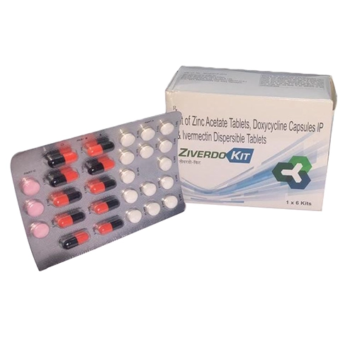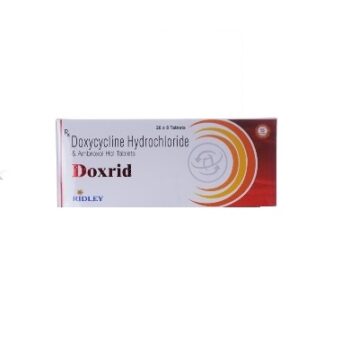Althrocin 250 mg Tablets (Erythromycin)
Althrocin 250 mg tablets are an antibiotic medication containing the active ingredient erythromycin. They are commonly prescribed to treat bacterial infections such as respiratory tract infections, skin infections, and certain sexually transmitted diseases.
It works by stopping the growth of bacteria. It’s important to follow the prescribed dosage and complete the full course of treatment even if symptoms improve. Side effects may include nausea, vomiting, diarrhea, and stomach pain.
Uses
Althrocin 250 mg tablets, comprising erythromycin, function as a potent antibiotic, thwarting bacterial proliferation. They are efficacious against respiratory tract infections, skin maladies, and selected sexually transmitted diseases. Adherence to the prescribed dosage and completing the full treatment regimen, despite symptom alleviation, is imperative.
Potential side effects encompass nausea, vomiting, diarrhea, and abdominal discomfort. It is prudent to seek medical advice before usage, particularly if a history of liver or kidney ailments exists, or concurrent medication intake.
Available Strengths
How to use Althrocin 250 mg?
To use Althrocin 250 mg tablets, follow these guidelines meticulously: Take the prescribed dosage orally with a full glass of water, with or without food, as directed by your healthcare provider. Do not crush or chew the tablets; swallow them whole. Adhere strictly to the prescribed schedule and complete the full course of treatment, even if symptoms improve before the regimen ends.
Avoid skipping doses or stopping prematurely, as it may lead to bacterial resistance. If you miss a dose, take it as soon as you remember; however, if it’s close to the next scheduled dose, skip the missed.
How does erythromycin 250mg work?
Althrocin 250 mg tablets operate by inhibiting bacterial growth through the active ingredient erythromycin. This antibiotic hampers the synthesis of essential proteins in bacteria, hindering their ability to multiply and propagate. By impeding protein production, Althrocin disrupts vital functions within bacterial cells, ultimately leading to their demise.
This mechanism of action renders Althrocin effective against various bacterial infections, including respiratory tract infections, skin ailments, and certain sexually transmitted diseases. It’s crucial to adhere strictly to the prescribed dosage and complete the full course of treatment to ensure optimal efficacy and minimize the risk of antibiotic resistance.
Side Effects
Althrocin 250 mg tablets may elicit several side effects, albeit infrequently. Common adverse reactions include gastrointestinal discomfort such as nausea, vomiting, diarrhea, and abdominal pain. Other possible side effects encompass allergic reactions, skin rash, itching, and liver function abnormalities.
Additionally, prolonged usage may lead to antibiotic resistance or overgrowth of non-susceptible bacteria. In rare cases, severe side effects like Clostridium difficile-associated diarrhea or QT interval prolongation may occur.
Precautions
When using Althrocin 250 mg tablets, observe the following precautions:
- Complete the prescribed course of treatment even if symptoms improve to prevent bacterial resistance.
- Inform your healthcare provider of any existing medical conditions, allergies, or medications you are taking.
- Avoid consuming alcohol during treatment as it may increase the risk of side effects.
- Monitor for signs of allergic reactions such as rash, itching, or difficulty breathing.
- Use caution if operating machinery or driving, as Althrocin may cause dizziness or drowsiness.
- Store the medication in a cool, dry place away from children and pets.
- Consult a healthcare professional if pregnant or breastfeeding before using Althrocin
Some Tips
Consider these unique tips while using Althrocin 250 mg tablets:
- Hydrate adequately to help flush out toxins and minimize gastrointestinal discomfort.
- Incorporate probiotics into your diet to maintain healthy gut flora during antibiotic treatment.
- Practice good hand hygiene to prevent the spread of infections while on Althrocin.
- Avoid prolonged sun exposure and use sunscreen as Althrocin may increase sensitivity to sunlight.
- Keep a journal to track any side effects or changes in symptoms to discuss with your healthcare provider.
- Engage in stress-reducing activities to support overall immune health during treatment.
- Discuss alternative treatment options with your doctor if experiencing severe side effects or allergies to Althrocin
Frequently Asked Questions
What is Althrocin 250 mg used for?
Althrocin 250 mg is an antibiotic used to treat bacterial infections, including respiratory tract infections, skin infections, and ear infections. It contains Azithromycin, which inhibits bacterial growth.
How should I take Althrocin 250 mg?
Althrocin 250 mg is usually taken once daily. It can be taken with or without food. Follow your doctor’s instructions regarding dosage and treatment duration.
What are the common side effects of Althrocin 250 mg?
Common side effects include nausea, vomiting, diarrhea, and stomach pain. These are generally mild and go away as your body adjusts to the medication.
Can I drink alcohol while taking Althrocin 250 mg?
It’s best to avoid excessive alcohol consumption while taking Althrocin 250 mg, as alcohol can interfere with your body’s ability to fight infection and may increase side effects.
How does Althrocin 250 mg work?
Althrocin 250 mg works by inhibiting the growth of bacteria, preventing them from reproducing and spreading, allowing your body’s immune system to eliminate the infection.
Can I use Althrocin 250 mg during pregnancy?
Althrocin 250 mg is classified as safe during pregnancy in most cases, but you should consult your doctor before using it to ensure it’s appropriate for you.
Can Althrocin 250 mg be taken with other medications?
Althrocin may interact with certain medications like antacids, warfarin, or other antibiotics. Always inform your healthcare provider about other medications you are taking.
What should I do if I miss a dose?
If you miss a dose of Althrocin 250 mg, take it as soon as you remember, unless it’s almost time for your next dose. Do not double the dose to make up for the missed one.
How long should I take Althrocin 250mg?
The duration of treatment depends on the infection being treated. Typically, a course lasts between 3 to 5 days. It’s important to complete the full course even if you feel better.
Are there any serious side effects of Althrocin 250mg?
Serious side effects are rare but can include severe allergic reactions, liver problems, and heart rhythm changes. If you experience rash, swelling, or difficulty breathing, seek medical attention immediately.
Conclusion
Althrocin 250 mg tablets, containing erythromycin, offer an effective treatment option for various bacterial infections. While generally well-tolerated, users should remain vigilant for potential side effects and adhere to prescribed dosages diligently.
Practicing proper precautions and maintaining open communication with healthcare providers is vital for maximizing treatment benefits and minimizing risks. With careful consideration and oversight, Althrocin can contribute significantly to restoring health and well-being











Reviews
There are no reviews yet.